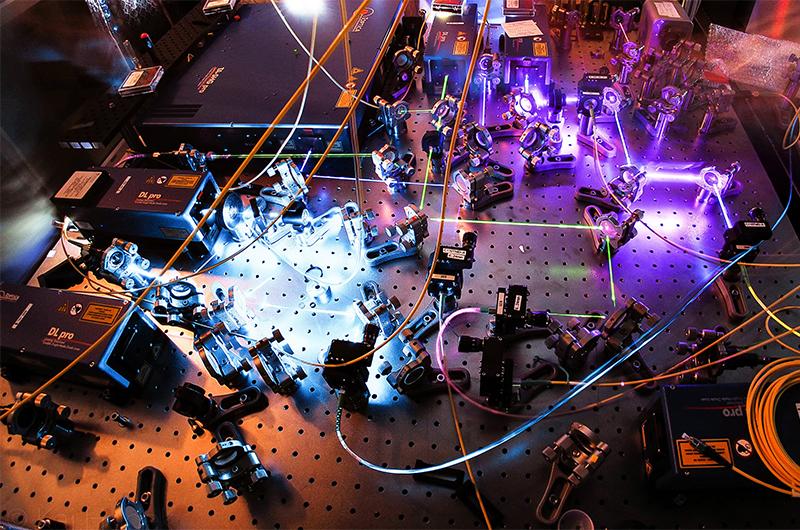Quantum Research

The University of Maryland is an established powerhouse of quantum discovery and innovation. With over 200 researchers on campus, partnerships with government laboratories, strong connections with industry and an international research network, UMD and its partners are leading the United States and global community into a quantum future.
Jump-started more than 15 years ago by a research partnership with the National Institute of Standards and Technology (NIST), scientists at UMD have advanced the frontiers of the quantum realm, which exists at nature’s tiniest scale. Here, in this almost invisible arena, particles like atoms, electrons and photons behave in surprising ways that have captured the imagination of scientists worldwide.
Today, the field of quantum research has reached an inflection point and is moving beyond laboratory physics. Scientists are now putting exotic quantum physics to work, overcoming crucial societal challenges. UMD is at the forefront of this pivotal transition, and its quantum programs have &expanded to include computer science, engineering and materials science- sparking synergy to fulfill the promise of quantum technology.
Partnerships are vital to maintaining UMD’s renowned programs and its leadership in this fast-changing field. Built on a foundation of success, UMD has formed the Mid-Atlantic Quantum Alliance, a regional consortium of scientists across academia, national laboratories and industry. Together, this consortium will continue to lead the quantum revolution.
UMD Select Capabilities:
- Central Overview: Quantum at UMD
- Condensed Matter Theory Center
- Joint Center for Quantum Information and Computer Science (QuICS)
- Joint Quantum Institute (JQI)
- Mid-Atlantic Quantum Alliance (MQA)
- National Quantum Laboratory (Q-Lab)
- Quantum Leap Challenge Institute for Robust Quantum Simulation
- Quantum Materials Center
- Quantum Startup Foundry
- Quantum Technology Center (QTC)
Quantum News
University of Maryland Appoints Renowned Physicist to Lead Quantum Research and Education
The University of Maryland on Monday named Gretchen Campbell, an internationally recognized researcher and advocate for the field of quantum science, as associate vice president for quantum research and education, effective July 13.
Quantum Computers Run on Just the Right Amount of Connectivity
Scientists know that entanglement, a special connection that intertwines the fate of quantum particles, is a crucial ingredient for quantum computers. Without it, a quantum computer loses its ability to harness the fullness of quantum complexity—that special sauce that makes the quantum world impossible to emulate on ordinary computers. But whether entanglement is the only key, and exactly how much of it is needed, no one really knows.
Simulations of ‘Backwards Time Travel’ Can Improve Scientific Experiments
If gamblers, investors and quantum experimentalists could bend the arrow of time, their advantage would be significantly higher, leading to significantly better outcomes. Working with collaborators at the University of Cambridge, Nicole Yunger Halpern(link is external), a Fellow in the Joint Center for Quantum Information and Computer Science (QuICS), has shown that by manipulating entanglement, researchers can simulate what could happen if one could travel backwards in time.
